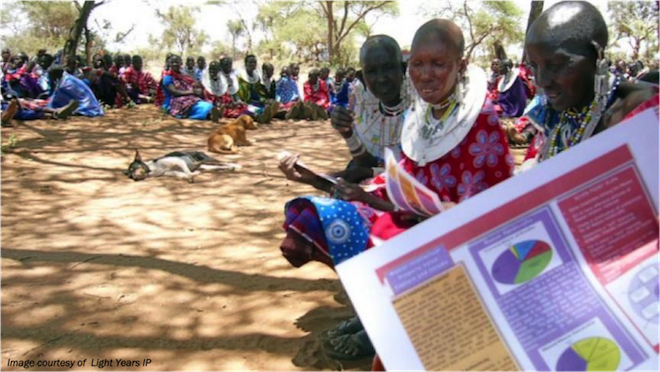Ron Layton is enabling small, struggling producers around the world to secure higher prices by creating and using intellectual property rights in innovative ways. His organization, Light Years IP, has helped double the revenue for small-scale producers by enabling them to leverage their intellectual property rights in the market place.

In 2007, Ethiopian producers were receiving only 5% of the retail value from the export of the three highly demanded fine coffees: Yirgacheffe, Harar and Sidamo. This coffee was generating nearly $2 billion in global retail markets. Traditional market dynamics – such as interactions with powerful middlemen and lack of product differentiation – leave rural Ethopian farmers with little negotiating power and consequently, farmers capture only a small percentage of the retail value of their harvests. Ron Layton, through Light Years IP, helped these farmers register trademarks on these coffee brands and set up a network of licensed distributors to help farmers break away from the commodity market and capture more of the value of their products. The following year, Ethiopian farmers captured an additional $100 million, double the previous year’s revenue for their products.
We often think of branding or product differentiation only occurring at the retail level, where the consumers interact with the products. With coffee, for instance, consumers know there are taste and product distinctions between Starbucks and Dunkin Donuts coffee. Ethiopian coffee, because of the high-altitude and the soil on which it is grown, is globally recognized as being of exceptional quality and of having a unique sought-after flavor. Unfortunately, most smallholder farmers in Ethiopia have no way of knowing that their Sidamo or Harar coffees are considered premium products in the marketplace and they have little negotiating power to capture this intrinsic value of their products. Ron teaches farmers how to assess the value of their products in the marketplace and leverage that knowledge at the negotiating table. Sometimes, such as in the case of the Ethiopian coffee farmers, he also creates formal legal trademarks on behalf of farmers.
This is just the beginning. Ron has expanded his efforts to reach some of the poorest people in Africa. The culture of the Masaai tribe, famous for its brilliant, distinctive red clothing, has inspired companies like Louis Vuitton and Ralph Lauren to name their products after the Masaai. But while these brands are profiting from the iconic tribe’s name, the Masaai tribe itself sees none of the returns. Ron argues that the Masaai people should be able to capture some value from the branding of their cultural identity. He has created a new organization, African IP Trust, to educate the Masaai people about the potential gains from laying claim to IP rights.
Ron estimates that there are at least 200 opportunities, apart from the Masaai, for African producers to capture value in their products. These opportunities could result in potential gains of $25 billion per year for poor producers.
By enabling value capture through strategies based on IP rights, Ron has found a unique way to animate market forces in favor of small farmers and marginalized cultures in Latin America and Africa. Securing IP rights forces suppliers and retailers to recognize producers’ critical role in the value chain. With secured IP rights, producers improve their position in the negotiation process. Ron is creating a win-win situation by creating a mechanism for farmers to capture the value of their unique product so that they may provide for their families while also providing incentives for producers to continue to produce quality products.
This is one of several case studies created as part of the Investing In Impact series, illustrating how the market-based mechanisms social entrepreneurs use tackle critical challenges and create lasting, systemic change.
